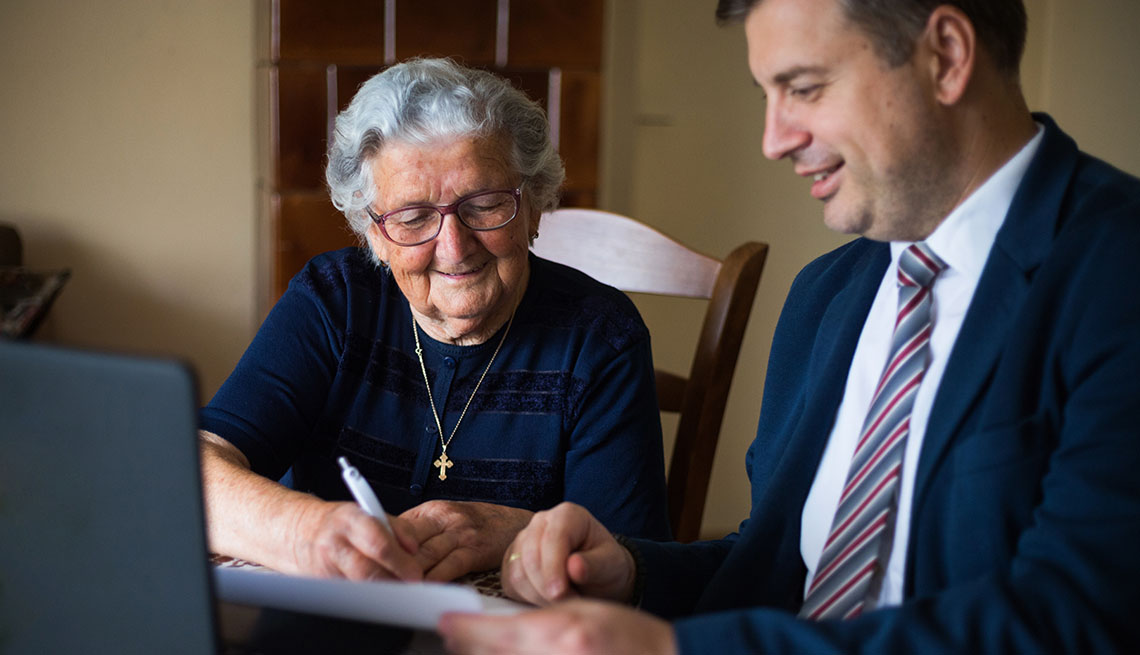
What legal action can be taken after being scammed?
- Select a language for the TTS:
- UK English Female
- UK English Male
- US English Female
- US English Male
- Australian Female
- Australian Male
- Language selected: (auto detect) - EN
Play all audios:

LEGAL PENALTIES GETTING STRICTER The law takes these crimes seriously, and the penalties for elder exploitation are becoming more severe. Every state, territory, commonwealth, the District
of Columbia and the federal government all have elder abuse laws that address exploitation. These laws vary from state to state, so the procedures and punishments will vary accordingly. No
matter where it occurs, when it comes to cutting off fraud and exploitation, time is of the essence. As soon as exploitation is suspected or confirmed, action should be taken. There will be
statutes of limitations (laws that say how long the authorities have to charge someone with a crime). Assets are more likely to be recovered and given back to the victim if they can be
located before they’re spent. And if the person being exploited is in advancing years and impaired, their health or cognitive ability may decline rapidly. They may lose memory of what
transpired or become a poor witness, so it’s best to move as quickly as possible. Injunctions or restraining orders to halt the scammer from doing more harm can be put in place by a court. A
court might issue an injunction even before the suspect gets away with the scam; it may be enough to just have evidence that the scammer is about to exploit someone. It also may order the
scammer to stop contact with a person, return property, transfer possession of property, freeze accounts, put a hold on credit lines and so on. Penalties for exploitation (or attempted
exploitation) of an older adult range from a first-degree to a third-degree felony, with lengthy mandatory prison sentences. There may be other punishments for the wrongdoing, in addition to
prison time and restitution. Now, in Florida, a person who has scammed, neglected, abused or exploited an elderly or disabled person will not be allowed to inherit from their estate when
they die. The fear of forced disinheritance may be enough to deter some from taking advantage of a vulnerable person and their money Exploitation, in all its forms, happens far more than we
know because victims and families do not report it. When you suspect you or a loved one has fallen prey to a scam or fraud, resist the urge to assign blame or judge the situation.
Manipulators and criminals are good at what they do and often go unnoticed. If the red flags are waving, get organized, be proactive and move forward to help hold wrongdoers accountable.
_Amanda Singleton is a recipient of CareGiving.com's national Caregiving Visionary Award and serves caregivers across their life span through her law practice. Follow her on Twitter and
Facebook._ TAKING ACTION When exploitation is suspected, you can take steps to assist authorities with their roles in investigating and prosecuting the perpetrator. * Use the elder resource
road map and call your state’s elder abuse hotline for guidance. * Talk to the victim, who may not know about the exploitation. * Notify the authorities and follow their instructions. *
Assemble your caregiving team by circling in trusted contacts, family members and friends. * Notify financial advisers who may be able to put a freeze on accounts. * Gather records
(medical, facility and prescription) that provide the earliest record of when a victim began to experience cognitive decline or impairment. * Document the victim’s interactions with the
suspect (did the suspect make any promises or encourage the victim to give them money?). Hang on to all documents the suspect gave the victim, like insurance applications or investment
flyers. If the victim can make a recorded or written (and signed) statement about what happened, capture it now. * Talk to all witnesses to interactions between the suspect and victim and
have them write down their recollection and sign it. Keeping excellent notes of the possible wrongdoing or manipulation will be of use to detectives and prosecutors. * Make notes that will
help investigators identify the suspect (physical description, make and model of their vehicle, etc.). * Meet with an attorney who can discuss your legal options regarding guardianship or
conservatorship if the victim lacks capacity to handle their own affairs and determine ways to have the suspect removed as power of attorney, guardian or trustee. 3 Ways Older Adults May Be
at Risk of Financial Abuse
